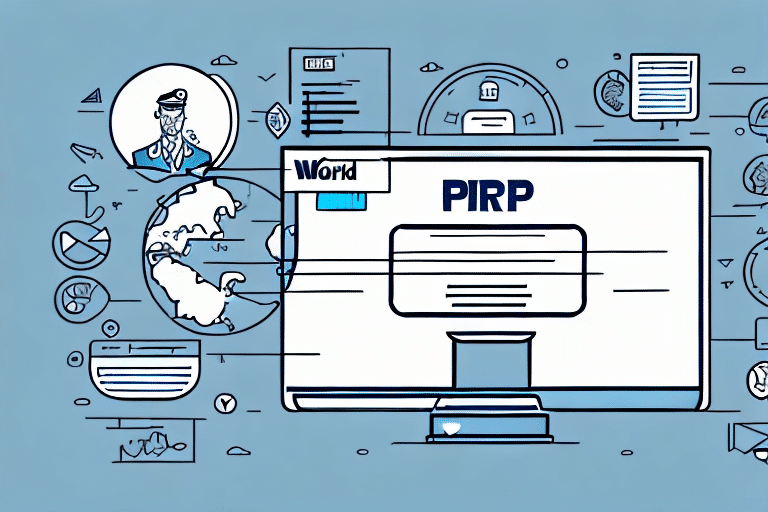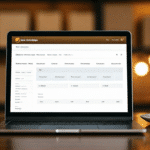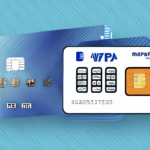Creating an ID Profile in UPS Worldship
If you regularly use UPS Worldship for shipping your packages, creating an ID Profile is a crucial step you should not overlook. An ID Profile serves as a unique identifier that stores all your shipping preferences and settings, allowing you to streamline your shipping processes, save time, and minimize errors.
Importance of an ID Profile in UPS Worldship
Setting up an ID Profile in UPS Worldship offers several significant benefits:
- Time Efficiency: Pre-configure your shipping preferences such as address, payment methods, and package types, eliminating the need to enter this information manually for each shipment.
- Error Reduction: Automated data entry reduces the likelihood of mistakes, enhancing the accuracy and reliability of your shipments.
- Organizational Benefits: Manage and track all your shipping activities from a centralized interface, improving overall organization and reducing the risk of delays.
- Cost Savings: Access discounted shipping rates by leveraging UPS's negotiated rates, which are often lower than standard rates.
Implementing an ID Profile can lead to a 30% reduction in shipping-related errors and a 20% increase in operational efficiency, according to industry reports.
Accessing and Navigating UPS Worldship
How to Access UPS Worldship
- Install the Software: Download and install UPS Worldship from the official UPS website.
- Launch the Application: Open UPS Worldship by double-clicking the desktop icon.
- Log In: Enter your UPS account number and password when prompted to access the software.
Once logged in, you can utilize a range of features such as creating shipping labels, tracking packages, and managing your shipping history.
Understanding the UPS Worldship Interface
- Menu Bar: Access primary functions like shipping, reports, and settings.
- Toolbar: Quickly access frequently used features such as the ship button and tracking lookup.
- Shipment History: View all your shipment records in a sortable and searchable grid.
- Address Book: Manage all your shipping addresses efficiently.
The interface is highly customizable, allowing you to adjust settings such as default package dimensions, shipping options, and label printing preferences to suit your specific needs.
Creating and Managing ID Profiles
Understanding ID Profiles
An ID Profile in UPS Worldship encapsulates two main components:
- Contact Information: Includes the shipper's name, address, and phone number.
- Shipping Preferences: Details such as package type, weight, dimensions, and payment information.
By using an ID Profile, you can automatically populate your shipping details, saving time and ensuring consistency across all shipments.
Steps to Create an ID Profile
- Navigate to the 'Profile Editor' from the 'Tools' menu.
- Click on 'Add New' to initiate a new profile.
- Enter your contact information and set your shipping preferences.
- Save the profile by clicking 'OK'.
After creating your ID Profile, you can manage your shipping preferences and track packages with ease. Additionally, setting up automatic notifications can keep you informed about the status of your shipments.
Customizing Your ID Profile
Personalizing Your Profile
- Add or remove shipping preferences based on your specific needs.
- Rename your ID Profile for easier identification.
- Set default values for fields that are frequently used in your shipments.
Customization ensures that your ID Profile aligns perfectly with your shipping requirements, enhancing efficiency and accuracy.
Setting Up Notifications
Configure your ID Profile to receive email or text alerts for key events, such as package deliveries or transit delays. This feature keeps you updated and allows you to take timely action if necessary.
Tips and Best Practices for an Effective ID Profile
- Accurate Information: Ensure that your shipping address, including zip and country codes, is complete and accurate to prevent delays.
- Default Values: Set default values for frequently used fields to expedite the shipment process.
- Descriptive Names: Use clear and descriptive names for your profiles to facilitate easy identification.
- Regular Updates: Periodically review and update your ID Profiles to maintain the accuracy of your shipping information.
Following these practices can significantly enhance the efficiency and reliability of your shipping operations.
Troubleshooting and Managing Multiple ID Profiles
Troubleshooting Common Issues
- Verify that the profile has been saved correctly.
- Ensure all contact information is current and accurate.
- Confirm that all required fields are properly completed.
- If problems persist, contact UPS Customer Support for assistance.
Managing Multiple ID Profiles
- Consistent Naming Conventions: Use uniform naming conventions to avoid confusion among multiple profiles.
- Organizational Groups: Organize profiles into groups based on different shipping requirements or departments.
- Regular Reviews: Periodically review and update profiles to reflect any changes in shipping needs.
Effectively managing multiple ID Profiles ensures that each shipment adheres to its specific requirements without unnecessary complications.
Benefits of Using an ID Profile in UPS Worldship
- Time Savings: Pre-configured shipping preferences reduce the time spent on data entry.
- Error Minimization: Automated data entry decreases the likelihood of shipping errors.
- Enhanced Accuracy: Consistent data entry improves the reliability of your shipments.
- Centralized Management: Easily manage and organize all shipping activities from a single interface.
Adopting an ID Profile can lead to more efficient and reliable shipping operations, ultimately benefiting your business's bottom line.
Conclusion
Creating an ID Profile in UPS Worldship is a fundamental step in optimizing your shipping processes. By storing all your shipping preferences and settings in one place, you can manage and track your shipments more effectively, reduce errors, and save valuable time. Implementing best practices in profile creation and management will ensure that your shipping operations remain efficient and accurate, catering to all your business needs.






















